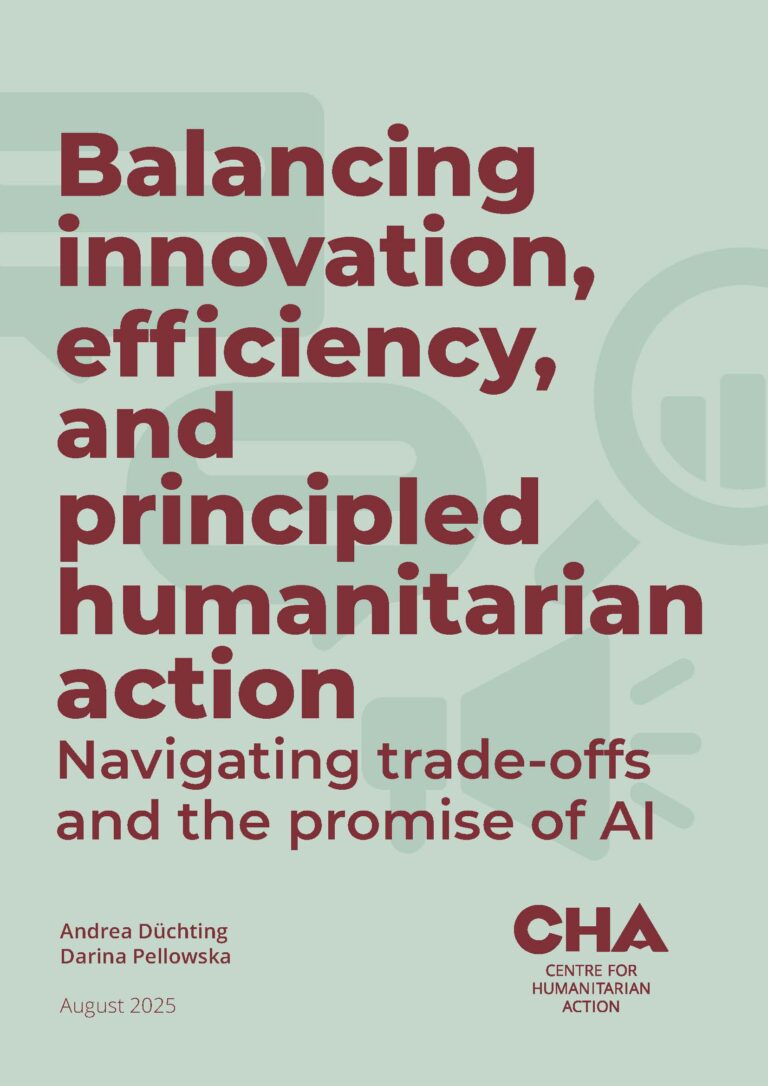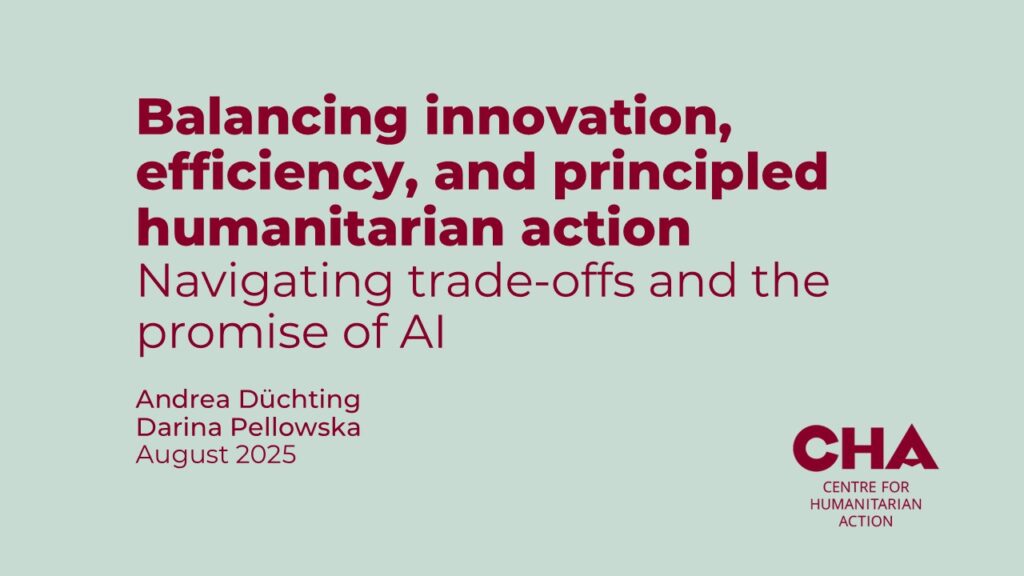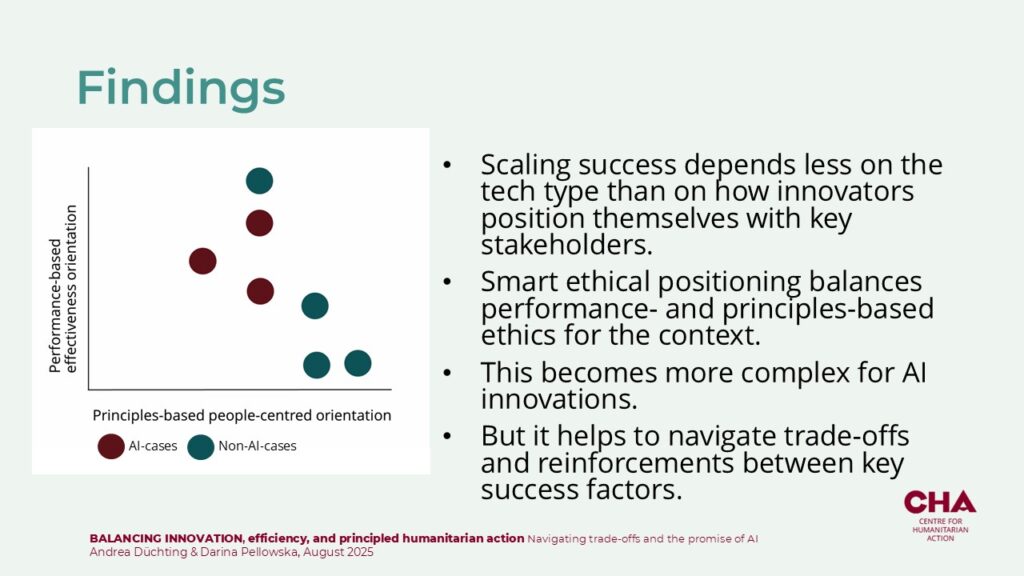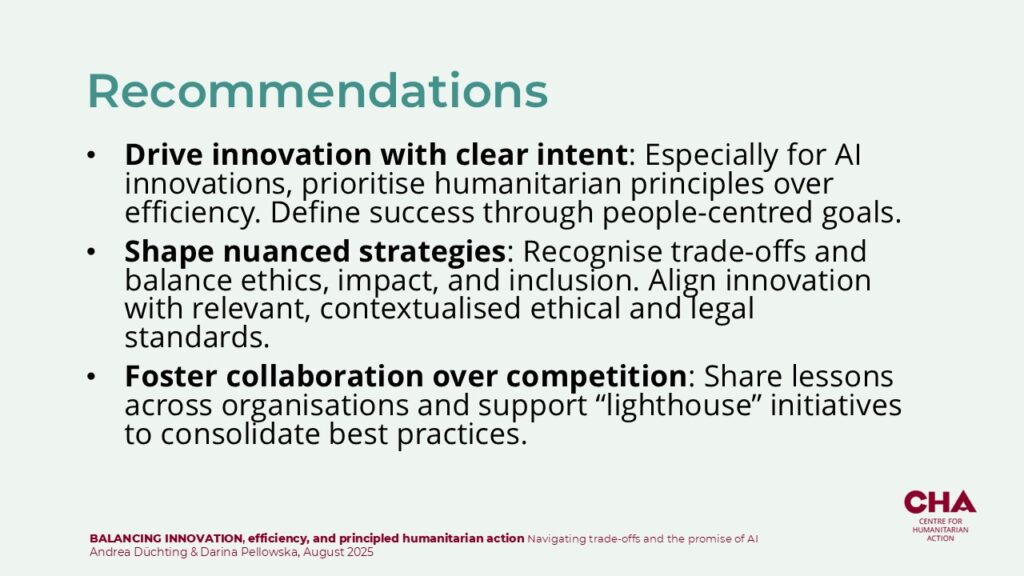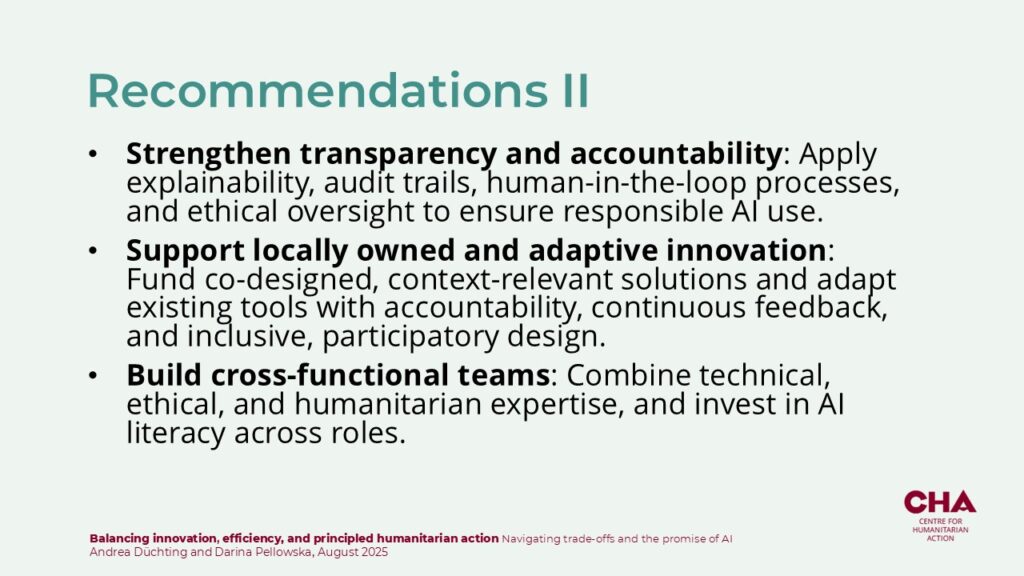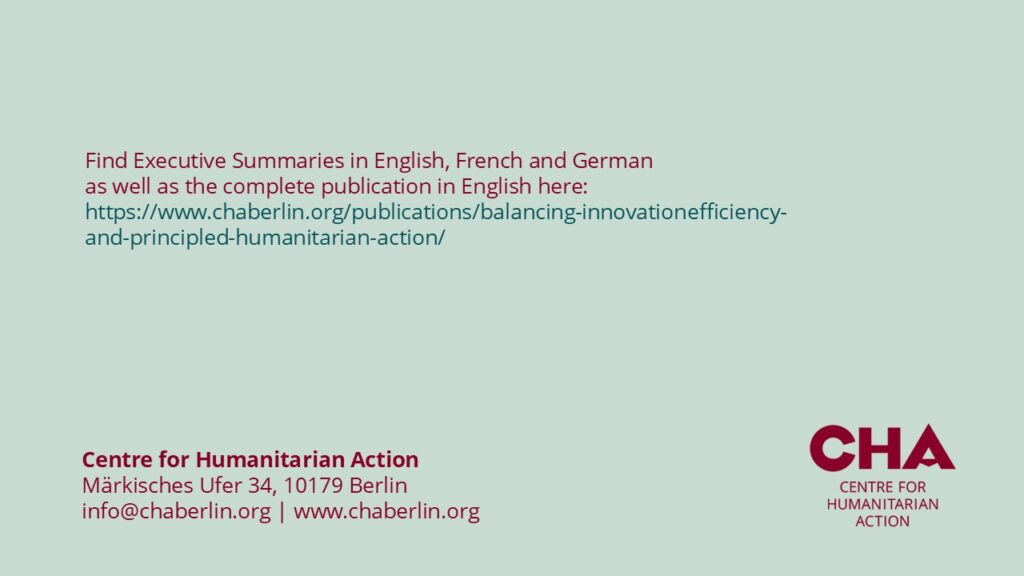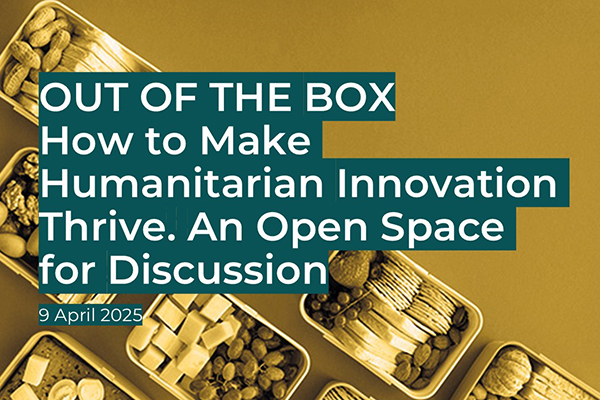| Author: | Andrea Düchting; Darina Pellowska |
| Date: | 31.08.2025 |
| Downloads: |
Paper (EN)
Executive Summary (EN) Executive Summary (DE) Executive Summary (FR) |
In this new paper Andrea Düchting and Darina Pellowska explore the complex space where humanitarian innovation balances opportunity and risk, performance and principles. Moving beyond debates on whether AI should be used at all, they examine how seven selected humanitarian innovations – AI-based and non-AI-based – are scaled in practice. This reveals that success in scaling is not so much determined by the type of technology alone, but mainly by how innovation owners navigate critical qualifiers, reinforcing dynamics, and inevitable trade-offs between key success factors through smart ethical positioning.
While these findings offer valuable insights, the paper does not ignore major concerns surrounding AI. It therefore situates its analysis within the broader debate on AI-related risks and challenges and shows how AI amplifies existing ethical dilemmas – particularly in the areas of accountability, consent, and adaptability. This positions AI as an ethical stress test for the humanitarian sector, forcing a confrontation with long-standing tensions in innovation governance and ethical practice.
This paper is a result of the project ‘The dilemma of innovation, efficiency and principled humanitarian action’, funded by the German Federal Foreign Office.
Take Aways
(Mouseover to pause)


